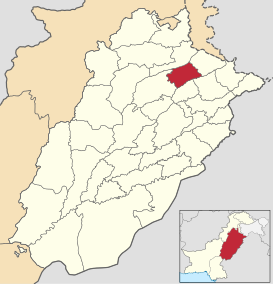 W
WThe Consulate General of the United States in Karachi is located in the province of Sindh in Pakistan and represents the interests of the United States government in Karachi, Pakistan and nearby surrounding areas. It is the United States' largest Consulate General, and is larger, in terms of both personnel and facilities, than many U.S. Embassies. Technically a part of Mission Pakistan, and reporting through the Embassy of the United States in Islamabad.
 W
WThe 2012 Bacha Khan International Airport attack was a coordinated assault on Bacha Khan International Airport and the adjacent Pakistan Air Force Base Peshawar on 15 December 2012 by Tehrik-i-Taliban terrorists in Peshawar, Khyber Pakhtunkhwa, Pakistan.
 W
WThe October 2009 Lahore attacks were simultaneous assaults on three buildings across Lahore, Punjab, Pakistan, on 15 October 2009, around 9:15 am local time. The attacks killed 38 and wounded at least 20. One group of militants attacked the Regional Headquarters of the Federal Investigation Agency (FIA), while a second group raided the Manawan Police Training School. The third team of militants attacked the Elite Police Academy.
 W
WThe 2011 Mastung bus shooting was an armed attack on 20 September 2011 on a bus traveling in Mastung District near the city of Quetta in the Pakistani province of Balochistan. The attack left at least 26 people dead. The victims were Shi'a Muslim pilgrims of the Hazara community, suggesting the attack to have been a targeted killing of sectarian nature. The attack occurred in Luck Pass area near Mastung. The bus was leaving Quetta for Taftan, Balochistan. In addition, 2 others were killed in a follow-up attack on a car on its way to rescue the survivors of the bus attack, which raised the death toll to 28 on that day.
 W
WThe 2005 Mong shooting occurred on 7 October 2005 in Mong in the Mandi Bahauddin District, Punjab, Pakistan. Eight members of the minority Ahmadiyya Muslim Community were killed inside a mosque as worshipers were performing Salat.
 W
WThe Hazara community in Quetta, in Pakistan, has been the target of persecution and violence. Terrorist organisations like Lashkar-e-Jhangvi have often accepted responsibility for conducting attacks on Hazaras in Pakistan.
 W
WThe 2004 Quetta Ashura massacre is the sectarian terrorist attack on Tuesday 2 March 2004 during an Ashura procession in southwestern city of Quetta, in Balochistan province of Pakistan. At least 42 persons were killed and more than 100 wounded in the attack. The attack took place in Liaqat Bazaar Quetta, almost all of the victims were from Hazara ethnic minority of Balochistan. The incident occurred just after the incident of Karbala Ashura bombings in Iraq.
 W
WOn 24 October 2016, three heavily armed terrorists carried out an attack on the Balochistan police training college in Quetta, Pakistan, killing 61 cadets and injuring more than 165 others. The Islamic State of Iraq and the Levant – Khorasan Province claimed responsibility for the attack, and Pakistan-based Lashkar-e-Jhangvi claimed to have collaborated with them. According to Pakistani authorities, the assailants came from Afghanistan and were in contact with their handlers there while perpetrating the attack.
 W
WTargeted killings in Pakistan have been a rising form of violence and have contributed to security instability in the country. They have become common and have gained attention especially in Karachi, Pakistan's largest city, economic capital and capital city of the Sindh province. Several targeted killings have also occurred in Quetta, the capital of the southern province of Balochistan. Police and law enforcement agencies have sometimes come under criticism for their ineffectiveness in locating the perpetrators and investigating their motives. For most part, targeted killings in Karachi have been attributed to political, religious and ethnic reasons. There are speculations about the killing but no real proof has been found against any party.